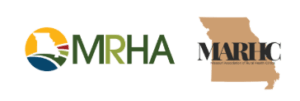August 18, 2025

Webinar: Meeting Patients Where They Are: How Tech-driven Clinical Workflows Support Population Health, August 26
Health systems’ patient populations are shifting, driven by aging demographics, expanding service footprints, and rising expectations for transparency and access. Adaptation is paramount.
But meeting patients’ needs has never been more complex. Leaders must engage communities with varying levels of digital literacy while supporting clinicians facing mounting workloads and staffing challenges.
It’s time to move from ambitious plans to proven, sustainable solutions. This webinar will bring together health system leaders to explore how technology delivers measurable ROI, strengthens patient education, and builds more inclusive, streamlined care workflows that evolve as needs change.
Join this conversation to learn how your peers are:
- Using digital tools to engage diverse communities and advance patient education,
- Evaluating the ROI of technology-enabled workflows – and the metrics that matter most, and
- Designing adaptable methods that sustain performance across markets and populations.
Cost: Free
When: Tuesday, August 26, 11:00 a.m. – 12:00 p.m.
Click Here to Register





